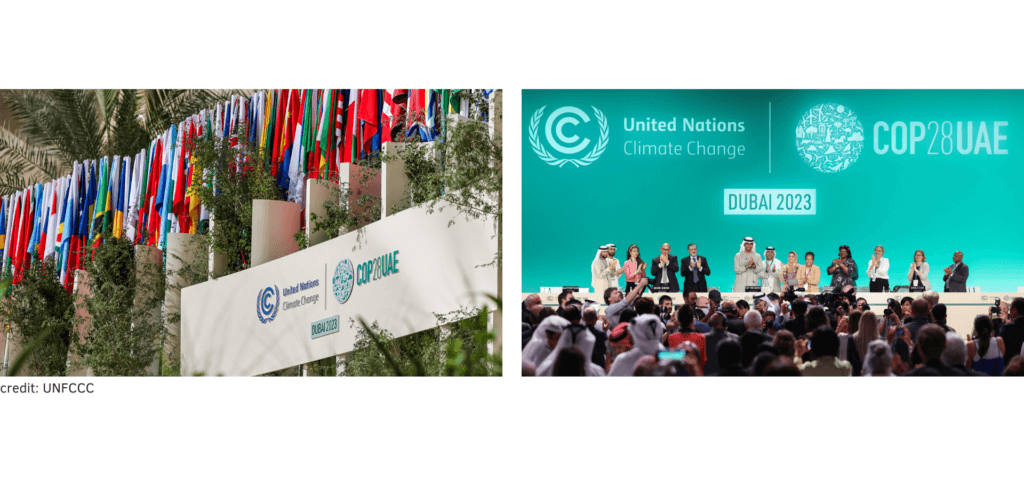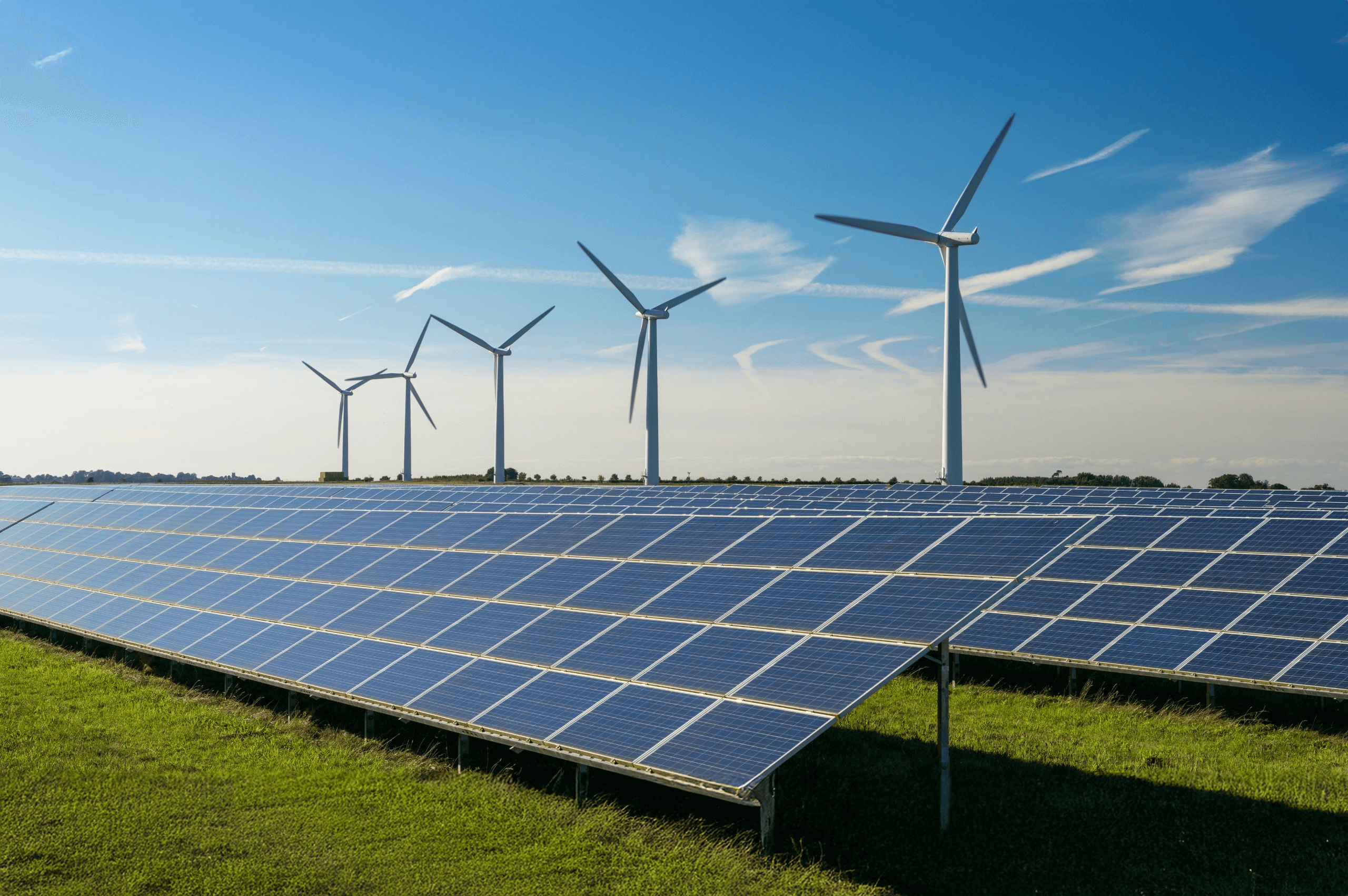
The COP28 conference marked an important moment in the global conversation about energy storage and batteries. While signalling the need to move away from fossil fuels, it emphasised the potential of energy storage to shape a sustainable energy future significantly.
The 28th Conference of the Parties (COP28) to the United Nations Framework Convention on Climate Change was held in Dubai from 30th November to 12th December. The conference brought together global leaders, experts, and stakeholders to address the pressing issue of climate change. The theme of COP28 was "Building a Resilient Future," focusing on accelerating global action to limit global warming to 1.5 degrees Celsius above pre-industrial levels.
Despite the scepticism that preceded the conference, particularly surrounding the host nation, Dubai, a major oil producer, COP28 emerged as a revolutionary climate change summit. For the first time in 28 years, fossil fuels were formally recognised as the primary driver of climate change. This acknowledgement, a significant shift from the previous COPs, marked a turning point in the international community’s approach to climate change. It challenged the long-held narrative that fossil fuels were necessary for the energy mix and laid the foundation for a faster transition to a low-carbon economy. This formal recognition of fossil fuels’ role in climate change was not just a symbolic gesture but led to a series of bold decisions and commitments to accelerate the global transition to clean energy sources. Over 100 countries pledged to phase-out coal power by 2030, which is a huge milestone in decarbonising the energy sector.

Energy storage for green transition
COP28 provided an opportunity for stakeholders to discuss the complexities of energy storage technologies and their potential to contribute to a more sustainable energy future. The discussions focused on integrating renewable energy sources, enhancing the stability of power grids, and addressing the issue of energy poverty. COP28 witnessed several notable developments related to energy storage, including the launch of the Supercharging Battery Storage Initiative and the Multilateral Consortium for Battery Storage.
Member governments of the Clean Energy Ministerial (CEM), including the European Commission, Australia, Canada, and the United States, announced the launch of the Supercharging Battery Storage Initiative in Dubai. This initiative aims to increase the capacity of battery storage in the power grid while ensuring a transparent, resilient, and sustainable energy system. It is focused on reducing technology costs, as batteries play a crucial role in creating a flexible and reliable energy system. Through this initiative, member governments of the CEM are committed to a cleaner and more accessible energy future. “Battery storage will be the backbone of the green transition with an essential role in decarbonising transport and energy. It will enable a truly decentralised and integrated energy system based on efficient use and renewable generation,” said Maroš Šefčovič, Vice President of the European Commission.
Bridging the energy gap
The Global Leadership Council announced the formation of the Battery Energy Storage Systems (BESS) Consortium, with participation from 11 African countries. The consortium has pledged to deploy a minimum of 5GW of battery storage systems in Africa by 2030. The initiative seeks to tackle energy poverty and improve access to reliable electricity in low- and middle-income nations on the continent. Dr. Rajiv J. Shah, the President of The Rockefeller Foundation and Co-chair of the GLC, highlighted the need for transformative initiatives. He stated that "Without sufficient storage capacity, countries will be unable to add renewable energy to their grids at the scale needed to reduce emissions and create economic opportunity. The BESS Consortium is an example of the sort of big, bold action required to break down the barriers that are preventing people and communities from joining the ongoing climate transformations."

As part of the COP28 agreements on energy storage, the United States and partner countries of the Net Zero World initiative have announced significant progress in building clean and secure energy systems in emerging economies. This includes helping Ukraine deploy distributed renewable energy and storage systems for critical infrastructure. Participants of COP28 have also called for increased investment in research and development for energy storage technologies. The aim is to accelerate innovation, improve performance, and reduce costs, making energy storage more accessible and cost-effective.
Advancing a cleaner future
The decisions and commitments made at COP28 are a step forward in the global effort to combat climate change. By acknowledging the role of fossil fuels in climate change and committing to a rapid transition towards a low-carbon economy, COP28 has set a new course for the international community.
Moreover, the conference marked an important moment in the global conversation about energy storage. COP28 emphasised the potential of energy storage to significantly shape a sustainable energy future. Initiatives such as the Supercharging Battery Storage Initiative, BESS Consortium, and Net Zero World all point in one direction, addressing energy poverty, promoting sustainability, and achieving clean energy goals. To achieve this, we need all battery chemistries.
The conference's outcomes indicate a renewed commitment to accelerating the development and deployment of these technologies. As energy storage becomes more widespread and cost-effective, it will play a critical role in addressing climate change, ensuring energy access, and creating a more resilient and sustainable energy system.
The Consortium for Battery Innovation is actively involved in the rollout of advanced lead battery energy storage systems to contribute to global climate goals. In two ongoing energy storage projects, LoCEL-H2 and Aftrak, we are helping develop BESS combined with solar microgrids to provide a sustainable, reliable, low-cost energy system for remote communities. These projects also demonstrate how energy storage solutions are key to achieving a just transition, helping to increase food access, health outcomes and gender equality. With more energy storage projects underway, CBI will continue to support sustainable development for a climate-resilient future.

09/12/2025